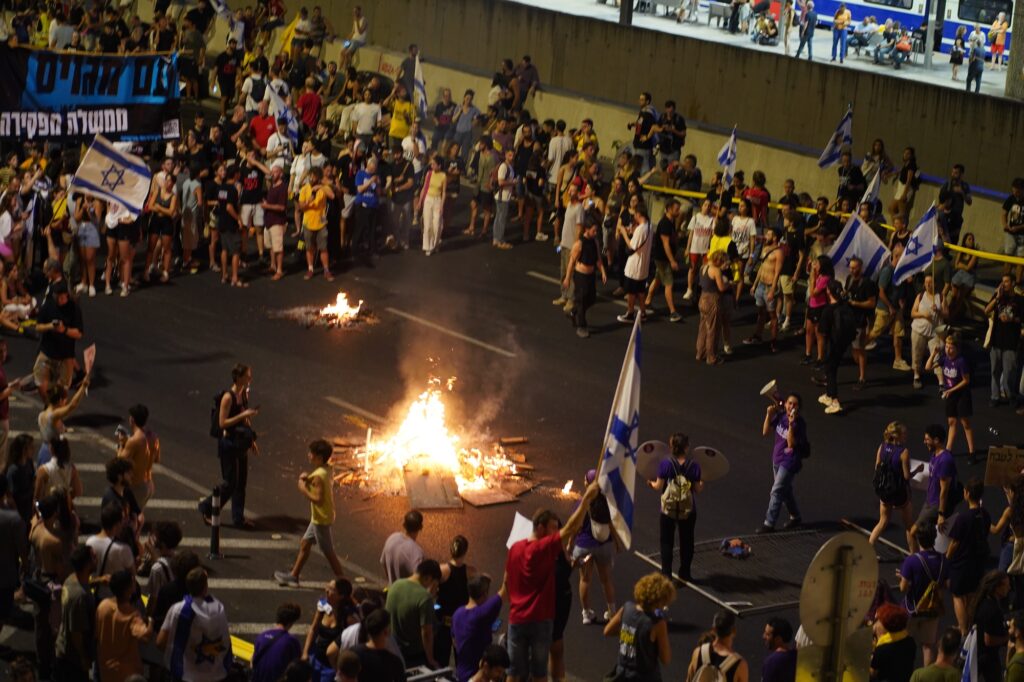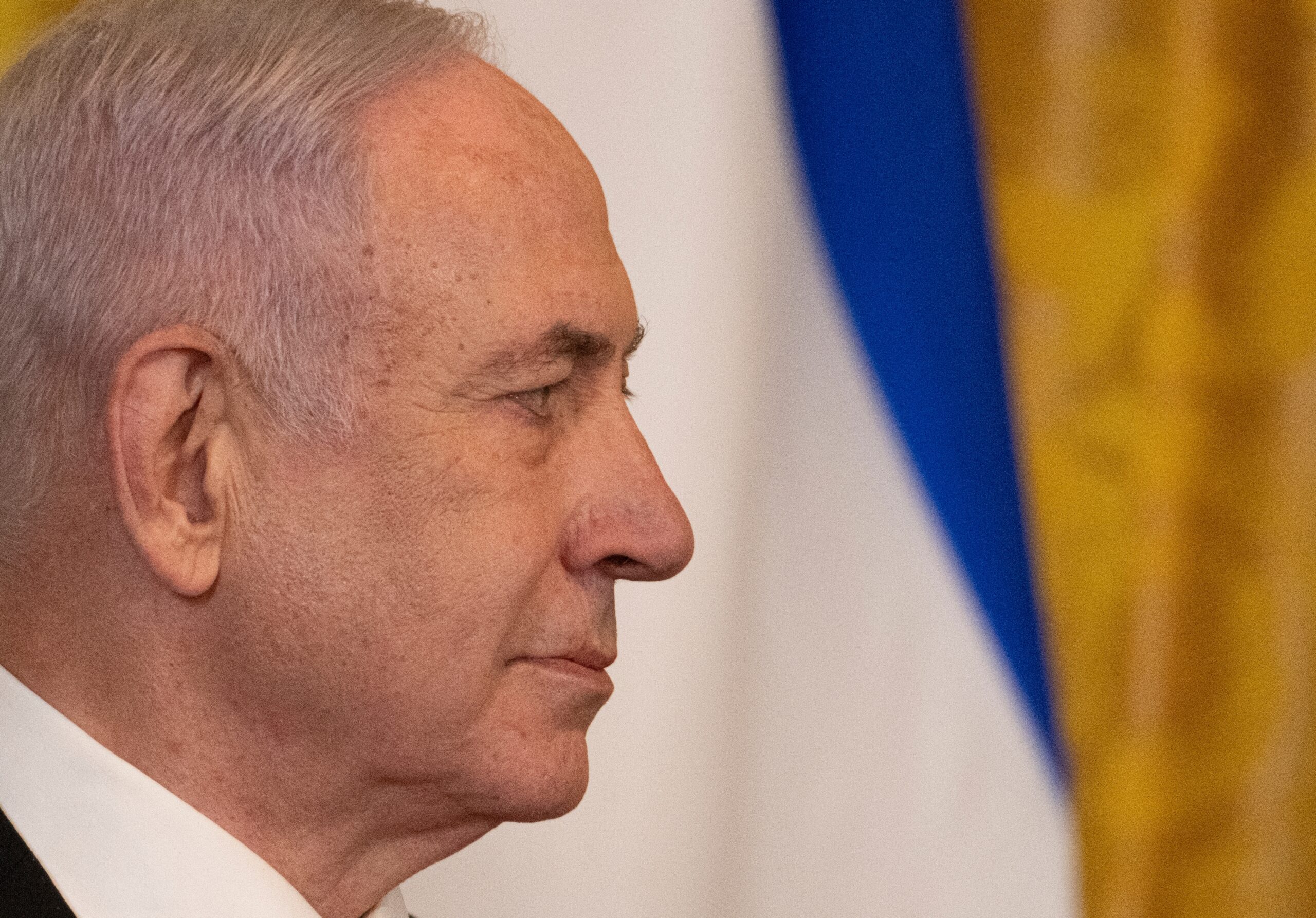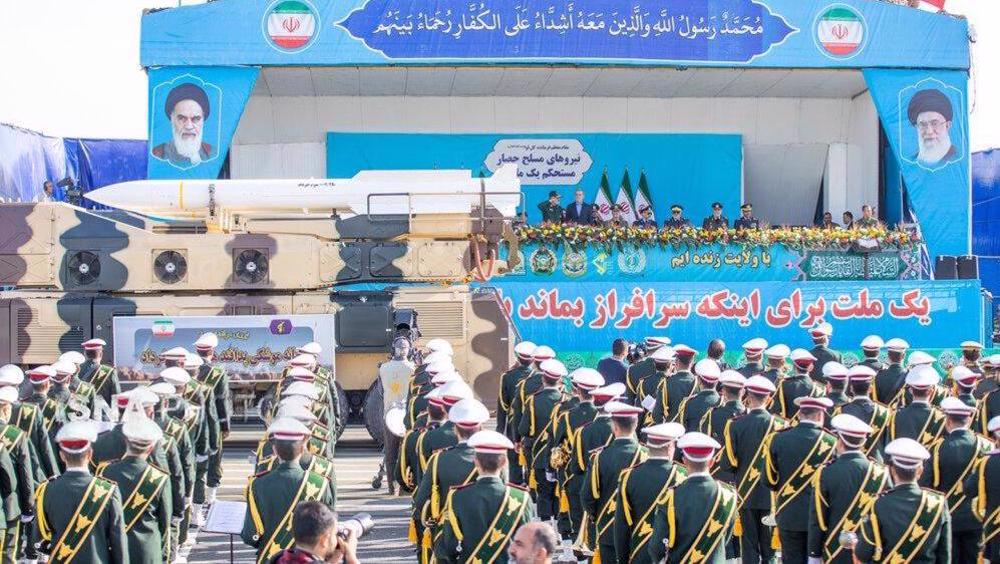IN THE MEDIA
Among Israelis, the view of the situation in Gaza is complex — rooted in a trust deficit
August 1, 2025 | Ran Porat

ABC Religion and Ethics – 1 August 2025
The images coming out of the Gaza Strip are deeply distressing and difficult to watch. The international media has a responsibility to show what is happening in this war-ravaged area and to present the plight of the Palestinian people. However, the same media is often remiss when it comes to reporting on the situation in Israel. It fails to adequately convey the Israeli psyche: how Israelis perceive the war, its objectives and the people on the other side. These views have shifted dramatically over nearly two years of conflict.
We all know that the war in Gaza has divided public opinion around the world, including in Australia. What is less well known is that it is also tearing Israeli society apart. Those among us who genuinely aspire for peace and reconciliation — rather than chant empty slogans or cheer on extremists — must strive to understand the Israeli point of view.
The key factor shaping Israeli perceptions of the current situation in Gaza is a deep trust deficit.
The cracks appear
To understand the current Israeli mindset, one must go back to the beginning of 2023 and the judicial reform plan (sometimes called a “coup” by its critics) introduced by the newly formed coalition government led by Benjamin Netanyahu and his far-right political partners, Bezalel Smotrich and Itamar Ben Gvir. The reform sought to significantly reduce the judiciary’s power to review government actions, especially that of the Supreme Court.
A majority of Israelis viewed this as a blatant power grab, an attempt to dismantle the fragile system of checks and balances in Israeli democracy. This triggered mass protests, with millions taking to the streets week after week. It marked the first major breach of trust between the government and its citizens.
Then came 7 October 2023, that horrific day of mass murder, rape, kidnapping and looting carried out by Hamas terrorists and, evidently, some ordinary Gazans. The attack devastated Israeli communities near the border and caught the Israeli Defence Forces (IDF) completely off guard. This was the second major breach of trust: the state’s failure to provide its citizens with basic security.
A government under fire

Israeli PM Netanyahu: A highly divisive figure within Israel (Image: Shutterstock/ Noam Galai)
Since then, trust in the IDF has been largely restored, following successful military campaigns in the region. In Lebanon, the IDF subdued the Iranian proxy Hezbollah, which is now under growing pressure from the Beirut government to disarm. Then came a decisive twelve-day offensive against Iran in June, which significantly disrupted Tehran’s pursuit of weapons of mass destruction.
But the majority of Israelis feel that the war in Gaza has taken a very different trajectory. The fate of the hostages — still being held by Hamas in appalling conditions — remains a central issue and a major source of continued distrust in the government. Poll after poll over the past year show that the anti-Netanyahu bloc — which includes parties from the right, left and centre — would defeat the pro-Netanyahu camp if elections were held today. The next elections are scheduled for late 2026, but Israeli governments rarely last their full term.
Most Israelis are also acutely aware of the ethical cloud hanging over the prime minister. Netanyahu and members of his family have been linked to various questionable affairs involving behaviour unbecoming of a public figure of his stature — including allegations of accepting, and at times soliciting, gifts from wealthy and influential individuals to support a lavish lifestyle, as well as offering favours to media outlet owners in exchange for positive media coverage. The prime minister is currently standing trial on multiple counts of bribery, fraud, and breach of trust.
As the longest-serving prime minister in Israel’s history — 17 years across three separate terms (from 1996 to 1999, from 2009 to 2021, and from 2022 to the present) — Netanyahu is known (or notorious) for his political cunning. He is criticised for allying with extremists and deliberately sowing divisions within Israeli society to maintain his grip on power. Over the years, he has managed to cultivate and sustain a loyal base of supporters, but he is increasingly losing the Israeli centre.
Netanyahu has also eroded public trust by steadfastly refusing to take any responsibility for the failures that led to the deadly 7 October attack. Even worse, he has actively blocked efforts to establish a state-sanctioned commission of inquiry into the systemic problems that enabled the attack — something akin to the Agranat Commission following the 1973 Yom Kippur War.
It is widely believed that Netanyahu fears such a commission would scrutinise his role in the policy which resulted in an emboldened Hamas in Gaza, while the Palestinian Authority (PA) in the West Bank continued to weaken. For example, Netanyahu’s decision to allow Qatar to regularly funnel millions of dollars into Gaza has been cited as a move that helped empower Hamas.
The war’s stagnation and the societal toll
The government’s war policy is perhaps the most controversial aspect of its conduct. Netanyahu is frequently accused of allowing political and unrelated considerations to influence war strategy and objectives. Nearly two years into the conflict, there is a growing sense of stagnation and uncertainty. The government has yet to present a viable post-war plan for Gaza. Instead, it is has been flirting with a highly controversial proposal to “voluntarily” evacuate large numbers of Palestinians from the strip, after this idea was first introduced by US President Donald Trump.
Moreover, the ongoing captivity of twenty living Israelis still held in Gaza under horrific conditions, along with the bodies of thirty others, is a national trauma that continues to tear Israeli society apart. Netanyahu did manage to secure the release of 148 living hostages and 57 bodies through a series of partial deals with Hamas. However, these negotiations have repeatedly collapsed — sometimes due to Israeli actions. Recent reporting in the New York Times claims that the prime minister walked away at the last moment from such a potential deal in April 2024, which could have led to the release of more hostages, reportedly due to pressure from his far-right coalition partners.
Public opinion surveys in recent months clearly show that Israelis want the longest war in the country’s history to end, and soon. They support a deal that would bring all the hostages home, even if it means offering assurances to the murderous Hamas leadership that the war will come to an end without the organisation being fully defeated. This stands in contrast to Netanyahu’s expressed slogan of “total victory”.
At present, the IDF controls large areas of the Gaza Strip, which lies in ruins and devastation. Israeli soldiers continue to pay with their lives in what has become an almost stagnant situation, as Hamas has shifted to guerilla tactics. Many Israelis fear a repeat of the traumatic experience of being “bogged down in the Lebanese mud”. From 1982 to 2000, Israeli soldiers were regularly killed by Hezbollah while stationed as “sitting ducks” in outposts across southern Lebanon.
The toll of the current war on Israeli society and the economy is severe. As of late July, 898 soldiers have been killed since the start of the war, 454 died while fighting inside Gaza. Thousands more were injured. Hundreds of thousands have served for many months as reservists, placing immense strain on their personal lives. Rates of divorce, financial hardship and domestic violence are rising. An estimated 100,000 Israelis are expected to be acknowledge as PTSD sufferers in coming years, and mental health issues among IDF personnel continue to grow. These are only some examples of the broader social consequences of the war.
The humanitarian crisis and international opinion
The latest debacle over aid to Gaza epitomises the perception of mismanagement in the war effort. In hindsight, the decision to halt humanitarian aid to the strip for nine weeks beginning in March 2025 appears to have played into Hamas hands. The goal was to prevent the group from stealing aid and selling it to civilians at exorbitant prices to fund its terrorist activities, but the outcome has been disastrous.
The rushed and poorly executed rollout of the Gaza Humanitarian Foundation (GHF) aid distribution centres in May now looks amateurish and half-baked. Worse still, Hamas used the aid hiatus to flip the narrative on its head, turning the spotlight on the Palestinians killed in the vicinity of the centres and promoting the claims that Gazans are starving because the aid is being deliberately withheld from them. Many international media outlets have simply accepted Hamas’ version of reality, even as they ignore the role played by Hamas in the food crisis, which includes intimidating and killing those seeking aid, violently hijacking aid trucks and clashing with other armed gangs near aid points.
In any case, there is now a consensus that the people of Gaza are facing immense suffering, displacement and despair — caught between Israel and Hamas. This reality is now hitting home with the Israeli public, as local media has been increasingly covering the humanitarian catastrophe unfolding in the strip.
Most Israelis are not extremists. They empathise with the sorrow, pain and human tragedy of Gaza civilians. Yet they distrust the international community and the UN’s agencies, which have a history of cooperating with Hamas and currently tend to minimise or overlook Hamas’ own culpability for the humanitarian crisis.
Israelis look around and mostly see rejection, criticism and hate. They watch as an international campaign is unfolding aimed at defaming the Jewish state and accusing it of committing genocide and war crimes, often by redefining the traditional criteria used to identify these crimes to force them to apply to Israeli conduct. They watch with anxiety and fear the surge in antisemitism – including in Australia – and hear chants like “Death to the IDF” (almost every Jewish Israeli, and many non-Jewish Israelis, serve at the IDF) and “From the river to the sea, Palestine will be free,” a slogan widely interpreted as calling for the elimination of Israel.
Now, more countries have declared themselves willing to recognise an amorphous Palestinian state with no defined borders and no democratic leadership, and without any real consideration of Israeli concerns — such as what happened when Israel withdrew completely from Gaza in 2005, leading to it becoming a Hamas terror staging ground which has attacked Israel unrelentingly for the last eighteen years, culminating in 7 October. To many Israelis, this feels akin to granting Russia sovereignty over the territories it seized from Ukraine: a reward for aggression and terror. Feeling abandoned and betrayed by the international community, Israelis also doubt that the countries announcing their intention to recognise a Palestinian state would genuinely insist on excluding Hamas from such a state, even when they present this as a precondition for recognition.
The path forward
Palestinians, too, suffer from a deep trust deficit and daily life-threatening hardship. But who can they trust to save them?
Anyone who truly cares about reversing the worsening situation for the people of Gaza must also take into account the depth of Israeli mistrust. Sanctions on Israel, violent and hateful anti-Zionist protests, and other punitive measures only play into the hands of the extremists on both sides. These actions reinforce rejectionism and empower those who seek to gain more power and territory at the expense of their own people’s lives and future.
Instead, the international community should take a different path — one of engagement with Israel, rejection of Hamas, and resistance to its propaganda and lies. The unconditional and immediate release of Israeli hostages should be a non-negotiable starting point for any ceasefire or resolution. In addition, credible post-war plans for Gaza should be put forward as a basis for negotiation with Israel and with moderate Palestinian actors. A vision for a real future, based on economic prosperity and personal freedoms is vitally needed for Gaza, and ultimately, the West Bank.
Hope and dialogue are the only way both sides might finally see a light at the end of this long, dark tunnel which is paved with so much blood.
Ran Porat teaches Israeli and Middle Eastern Affairs at Monash University and is a research associate at the Australian Centre for Jewish Civilisation. He is also a research associate at the Australia/Israel & Jewish Affairs Council (AIJAC) and a research fellow at the International Institute for Counter-Terrorism at Reichman University in Herzliya.
Tags: Gaza, Hamas, Israel, Palestinians





